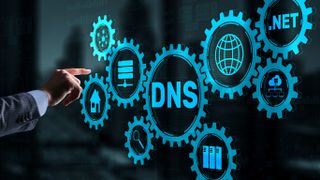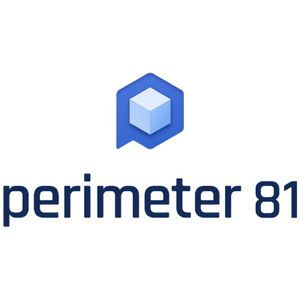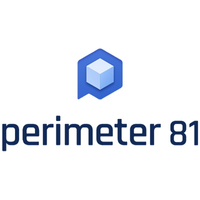
In a security conscious world, it’s often necessary to block access to certain websites or categories of websites. This can be achieved using a couple of methods, including via DNS filtering or by using the best URL filtering software.
In this article, we take a closer look at DNS filtering vs URL filtering, and how they can be used by schools, workplaces, and other organizations. Each method of restricting internet access has its pros and cons, but they both perform the same essential function. Let’s see how they stack up against each other.
<a href="https://www.perimeter81.com/lp/swg-p81-approach?a_aid=2380&a_bid=79f7ba86&data1=deal_block" data-link-merchant="perimeter81.com"" target="_blank">A TechRadar choice for top URL Filtering provider
Protect your employees and network from web-based threats with URL Filtering. Track web activity. Create custom filtering rules. Block malicious content. Secure your entire organization with just a few clicks with Perimeter 81. Radically simple. Get started today!
DNS filtering vs URL filtering: Features
On the most basic level, URL filtering blocks access to specific websites depending on predetermined URL restrictions. On the other hand, DNS filtering restricts access based on IP addresses, which makes it a more powerful but less flexible option. Both techniques share several features that make them useful to businesses and other organizations.
Access restriction
One of the key features of DNS and URL filtering is their ability to restrict access to certain parts of the internet. In a school setting, for example, you could restrict violent or pornographic content. In the workplace, you could restrict access to social media websites to boost employee productivity.
Restriction flexibility
One of the key differences between URL filtering and DNS filtering lies in how flexible they are. Since URL filtering can be applied at page level, it enables you to block access to certain parts of a website while leaving the rest of the site open. On the other hand, DNS filtering is restricted at website level, so you can only use it to block entire sites.
AI-based filtering
Advanced AI and machine learning powers many DNS and URL filtering programs. This eliminates the need for you to manually blacklist websites. Your program will automatically detect restricted content based on any number of filtering rules imposed by you and your admin team.
Minimizing bandwidth use
With both DNS and URL filtering programs, you can restrict access to websites and applications that consume large amounts of bandwidth. Blocking popular gaming and video streaming sites will reduce the amount of bandwidth your business uses, potentially saving you money on your broadband bill.
Are you a pro? Subscribe to our newsletter
Sign up to the TechRadar Pro newsletter to get all the top news, opinion, features and guidance your business needs to succeed!
DNS filtering vs URL filtering: Performance
DNS filtering and URL filtering are effective at restricting access to specified parts of the internet. However, due to the way each method works, they are useful for different scenarios.
For instance, DNS filtering performs particularly well when it’s used to block an entire domain. This is because it restricts access based on an IP address. On the downside, this means you can’t use DNS filtering to restrict access to specific parts of a website.
URL filtering is more flexible. It enables you to block access to an entire domain, but it can also be used on a much finer level. For example, perhaps a particular website has a few pages you don’t want your employees to see. By restricting access to specific URLs, you can leave the rest of the site free to be used as required.
The effectiveness of DNS and URL filtering programs at preventing people from bypassing them will largely depend on the program you use. Some free programs are easy to bypass with a VPN or proxy, but more advanced solutions have built-in failsafes to prevent this from happening. Platforms like DNSFilter and FortiGuard are powerful examples.
Read What's the difference between a VPN and proxy?
DNS filtering vs URL filtering: Support
The level of support you get with your DNS or URL filtering solution will depend on the software or program you choose. Different platforms offer different levels of support, and this is something worth keeping in mind if you think you may require technical support.
For example, DNSFilter, one of our favorite access blocking programs, offers DNS and URL web content filtering. It also includes support via phone and email, and there’s a comprehensive knowledge base packed with tutorials and other self-help resources.
Another popular option, FortiGuard, offers DNS and URL filtering, but its customer service is much poorer than DNSFilter’s. It also offers a selection of self-help resources, but the only way to access technical support is by completing an online contact form.
DNS filtering vs URL filtering: Pricing and plans
The amount you pay for DNS or URL filtering software can range from free forever to tens or even hundreds of dollars per month. There are a few free versions on the market, but these tend to be of poor quality, and we wouldn’t recommend you risk using them.
Instead, it’s worth paying a few dollars a month for a premium package. For example, our leading URL and DNS filtering option, DNSFilter, starts at just $0.90 per user, per month for basic content filtering, malware detection, and real-time AI-based content restriction.
Even this basic version offers more than enough power for small businesses looking for an internet access restriction solution. However, there are even more advanced options for larger organizations requiring more power.
DNS filtering vs URL filtering: Verdict
URL filtering and DNS filtering employ similar techniques for restricting access to specified websites. The main difference is in their flexibility, with DNS filtering limited to blocking entire websites. URL filtering, on the other hand, can be used in a much more granular manner, blocking individual pages or compromised links.
Both are available in free and premium versions, and there are numerous reliable solutions on the market. Many leading solutions offer both DNS and URL filtering in conjunction.
If you don’t already have some form of access restriction software, we suggest installing some to boost workplace productivity and prevent employees from accessing inappropriate content.
Daniel is a freelance copywriter with over six years experience writing for publications such as TechRadar, Tom’s Guide, and Hosting Review. He specializes in B2B and B2C tech and finance, with a particular focus on VoIP, website building, web hosting, and other related fields.
Most Popular





